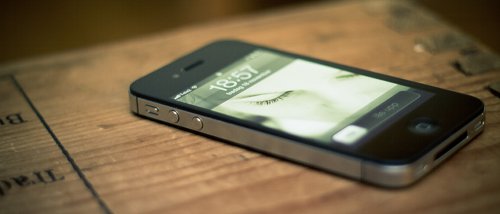Yes, you need to secure your smart phone too
Yes, you need to secure your smart phone too

Make sure you keep yours safe. (Image: Flickr user Johan Larsson.)
New smart phones have some strong security measures enabled out of the box. But did you know there are some simple steps you can take to make sure yours is secure?
Set a passcode
The simplest thing you can do protect your smart phone is to set a passcode. Once set, you will be required to enter the code to unlock and use your phone. The minor inconvenience of entering this each time will pay major dividends if your phone is ever lost or stolen.
A thief will be unable to access your phone without the passcode.
- With an iPhone, set your passcode by tapping: Settings > General > Passcode Lock
- On an Android phone, tap Settings > Security > Screen Lock
- If you use a Windows Phone, tap Settings -> Lock + wallpaper
Along the same lines, you should also make sure your phone is set to lock automatically when not in use. This means you won't have to remember to lock it yourself each time.
Keep your phone updated
Keeping your smart phone updated with the latest software is just as important as keeping your computer up to date.
Installing the latest updates helps you avoid any security problems that could affect your mobile operating system. For example, a security flaw in previous versions of Apple's iOS (which runs on every iPhone) could allow an attacker to bypass your lock screen.
You can search our website for details of security vulnerabilities affecting your particular model of phone.
Always be careful
All of the rules you've learned about being safe on your desktop computer apply when you're using your smart phone.
Be careful using public wireless connections, and particularly wary when the network doesn't require you to enter a password to connect. These connections are unencrypted, which means people can easily intercept your data.
Double-check the network you're connecting to is the one you think it is. Some attackers may try to steal your data by posing as a legitimate hotspot.
If you work with sensitive data a lot, consider a secure VPN connection for when you use public Wi-Fi. This should protect data even if you've connected to a dodgy network.
- Where to start with mobile security
- How to protect your phone from theft
- The business risks of smart phone apps
Giri Sreenivas is vice president of Mobile at security specialists Rapid7.




Comments
Add a comment